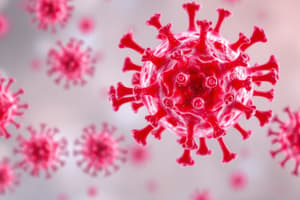Podcast
Questions and Answers
What is the primary function of Th1 mediated immunity?
What is the primary function of Th1 mediated immunity?
- Producing IgE
- Maintaining epithelial barrier function
- Eliminating helminthic parasites
- Clearing intracellular microbes (correct)
Which of the following is NOT an effector mechanism of Th2 cells?
Which of the following is NOT an effector mechanism of Th2 cells?
- Promoting abs to neutralize microbes and toxins
- Activating neutrophils
- Suppressing MΦ
- Inducing chemokines to recruit neutrophils (correct)
What is the primary function of Th17 cells in terms of eliminating pathogens?
What is the primary function of Th17 cells in terms of eliminating pathogens?
- Eliminating extracellular bacteria and fungi (correct)
- Eliminating helminthic parasites
- Eliminating intracellular microbes
- Producing IgG3 and IgG2a
What is the role of CD40L and CD40 in Tfh cells?
What is the role of CD40L and CD40 in Tfh cells?
In which location do Th2 cells eliminate helminthic parasites?
In which location do Th2 cells eliminate helminthic parasites?
What is the result of Th17 cells maintaining epithelial barrier function?
What is the result of Th17 cells maintaining epithelial barrier function?
What is the primary function of T cells in the immune response?
What is the primary function of T cells in the immune response?
Which subtype of Th cell produces cytokines such as IL-10 and TGFβ?
Which subtype of Th cell produces cytokines such as IL-10 and TGFβ?
What drives the migration of T cells to specific sites in the body?
What drives the migration of T cells to specific sites in the body?
What is the primary site of activation for T cells that regulate B cell function?
What is the primary site of activation for T cells that regulate B cell function?
What is the ratio of the volume of a T cell to the volume of the human body?
What is the ratio of the volume of a T cell to the volume of the human body?
What is the purpose of T cell migration in the context of the immune response?
What is the purpose of T cell migration in the context of the immune response?
What is the process by which T cells enter tissue?
What is the process by which T cells enter tissue?
Which selectins are involved in the migration of T cells to inflamed tissue?
Which selectins are involved in the migration of T cells to inflamed tissue?
What is the primary mechanism of apoptosis induction by granzyme/perforin granules?
What is the primary mechanism of apoptosis induction by granzyme/perforin granules?
Which type of T cell is responsible for killing target cells that present the same Ag/MHCI on their surface?
Which type of T cell is responsible for killing target cells that present the same Ag/MHCI on their surface?
What is the role of the APC in T cell migration?
What is the role of the APC in T cell migration?
What is the function of CXCL10 in T cell migration?
What is the function of CXCL10 in T cell migration?
What attracts effector cells to the site of infection?
What attracts effector cells to the site of infection?
What is the difference in adhesion molecule expression between naïve and effector T cells?
What is the difference in adhesion molecule expression between naïve and effector T cells?
What is the primary function of unconventional T cells such as γδ T cells and iNKT cells?
What is the primary function of unconventional T cells such as γδ T cells and iNKT cells?
What is the purpose of the chemokine gradient in T cell migration?
What is the purpose of the chemokine gradient in T cell migration?
What is the main target of γδ T cells?
What is the main target of γδ T cells?
What is the characteristic of unconventional T cells such as γδ T cells and iNKT cells?
What is the characteristic of unconventional T cells such as γδ T cells and iNKT cells?
Which type of immune response is thought to be somewhere between innate and adaptive immunity?
Which type of immune response is thought to be somewhere between innate and adaptive immunity?
What is the primary function of cytokines such as IL-2 and TNFα in terms of cytotoxicity?
What is the primary function of cytokines such as IL-2 and TNFα in terms of cytotoxicity?
Which of the following cytokines is NOT involved in cytotoxicity?
Which of the following cytokines is NOT involved in cytotoxicity?
What is the role of perforin and granzyme in terms of cytotoxicity?
What is the role of perforin and granzyme in terms of cytotoxicity?
Which of the following immune cells is NOT involved in phagocytosis?
Which of the following immune cells is NOT involved in phagocytosis?
What is the role of Fas:FasL pathway in terms of cytotoxicity?
What is the role of Fas:FasL pathway in terms of cytotoxicity?
Cytokines are a type of chemokine that attract cells to particular sites.
Cytokines are a type of chemokine that attract cells to particular sites.
Th cells carry out their function exclusively in the lymph node.
Th cells carry out their function exclusively in the lymph node.
T cell migration is initiated by the interaction between molecules on T cells and on endothelial cells lining blood vessels.
T cell migration is initiated by the interaction between molecules on T cells and on endothelial cells lining blood vessels.
Chemokines are involved in the activation of B cells.
Chemokines are involved in the activation of B cells.
Adhesion molecule expression on endothelium is downregulated by cytokines during the innate immune response.
Adhesion molecule expression on endothelium is downregulated by cytokines during the innate immune response.
IL-21 is involved in the activation of naive B cells to proliferate and differentiate into antibody-producing plasma cells.
IL-21 is involved in the activation of naive B cells to proliferate and differentiate into antibody-producing plasma cells.
Tfh cells contribute to the eradication of only certain classes of pathogens.
Tfh cells contribute to the eradication of only certain classes of pathogens.
Tregs can inhibit effector responses by producing pro-inflammatory cytokines.
Tregs can inhibit effector responses by producing pro-inflammatory cytokines.
Tregs can inhibit effector responses by blocking and endocytosing CD80 and CD86.
Tregs can inhibit effector responses by blocking and endocytosing CD80 and CD86.
Tregs can inhibit effector responses by providing CTLA-4, which engages CD80 and CD86.
Tregs can inhibit effector responses by providing CTLA-4, which engages CD80 and CD86.
CD4+ Tregs cells can rip-off and endocytose CD80/86 from CD4+ Th cells.
CD4+ Tregs cells can rip-off and endocytose CD80/86 from CD4+ Th cells.
CD8 T cells require CD4 help for the production of IL-2 and increased CD80/86 expression on the surface of antigen-presenting cells.
CD8 T cells require CD4 help for the production of IL-2 and increased CD80/86 expression on the surface of antigen-presenting cells.
The cytokine IL-10 is produced by Th1 cells and promotes pro-inflammatory responses.
The cytokine IL-10 is produced by Th1 cells and promotes pro-inflammatory responses.
TGFβ is involved in the elimination of helminthic parasites and promotes IgE production.
TGFβ is involved in the elimination of helminthic parasites and promotes IgE production.
Th17 cells are involved in the elimination of intracellular pathogens and promote mucosal immunity.
Th17 cells are involved in the elimination of intracellular pathogens and promote mucosal immunity.
IL-12 is involved in the differentiation of Th2 cells and promotes the production of IL-4 and IL-5.
IL-12 is involved in the differentiation of Th2 cells and promotes the production of IL-4 and IL-5.
CD4 Th cell effector function is largely governed by the cytokines produced by CD8 T cells.
CD4 Th cell effector function is largely governed by the cytokines produced by CD8 T cells.
Granzyme and perforin mediated death is a type of uncontrolled cell death.
Granzyme and perforin mediated death is a type of uncontrolled cell death.
CD8 (Tc) cells kill target cells that present a different Ag/MHCI on their surface.
CD8 (Tc) cells kill target cells that present a different Ag/MHCI on their surface.
γδ T cells recognize peptide antigens presented by MHC class I molecules.
γδ T cells recognize peptide antigens presented by MHC class I molecules.
MAIT cells are primarily found in lymphoid tissue and blood.
MAIT cells are primarily found in lymphoid tissue and blood.
Fas-FasL pathway is involved in granzyme/perforin mediated death.
Fas-FasL pathway is involved in granzyme/perforin mediated death.
Unconventional T cells are thought to be part of the adaptive immune response.
Unconventional T cells are thought to be part of the adaptive immune response.
IL-17 is involved in cytotoxicity
IL-17 is involved in cytotoxicity
IL-12 is involved in cytokine activity
IL-12 is involved in cytokine activity
Fas:FasL pathway is involved in perforin/granzyme mediated cytotoxicity
Fas:FasL pathway is involved in perforin/granzyme mediated cytotoxicity
Unconventional T cells are thought to be exclusively part of the innate immune response
Unconventional T cells are thought to be exclusively part of the innate immune response
Cytokines are involved in the activation of B cells
Cytokines are involved in the activation of B cells
Th cells are exclusively involved in humoral immune response
Th cells are exclusively involved in humoral immune response
Flashcards are hidden until you start studying
Study Notes
- Phagocytosis, cytotoxicity, and cytokine production are key mechanisms of immune response.
- Fas:FasL and perforin/granzyme pathways induce apoptosis, leading to programmed cell death.
- IL-2, TNFα, IL-17, IL-18, IL-12, IFN-I, and IFN-γ are cytokines involved in immune response.
- Unconventional T cells, including γδ T cells, iNKT cells, MAIT cells, and mucosal-associated T cells, are thought to be between innate and adaptive immunity.
- These cells have distinct antigen recognition patterns, including non-peptide, lipids, microbial lipids/glycolipids, and microbial-derived vitamin B2 metabolites.
- T cell effector functions occur in the lymph node and periphery, with different subtypes having distinct functions, such as Th1, Th2, Th17, Tfh, and Treg.
- Th1 cells clear intracellular microbes, Th2 cells eliminate helminthic parasites, Th17 cells protect against bacteria, and Tfh cells activate B cells.
- T cell migration is crucial for immune response, with T cells migrating to sites of infection in response to chemokine gradients.
- Chemokines and adhesion molecules play a key role in T cell migration, with different molecules involved in naïve and effector T cell migration.
- T cell function and migration are two sides of the same coin, with T cells responding to pathogens only through direct contact with antigen.
- Granzyme/perforin granules and Fas–FasL pathways are involved in induced apoptosis, leading to programmed cell death.
- T cell migration involves binding, rolling, and extravasation, with integrins and adhesion molecules playing a key role.
- The adaptive immune response involves T cell effector functions, including cytotoxicity, cytokine production, and B cell activation.
Studying That Suits You
Use AI to generate personalized quizzes and flashcards to suit your learning preferences.




